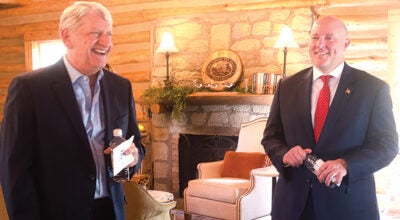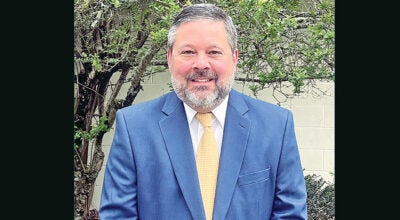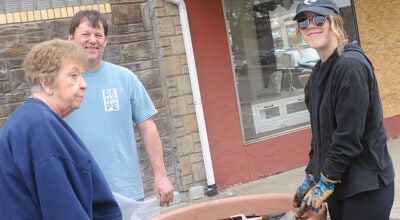Workshop helps make impact on drug crisis: Remaining classes set for May 16, 23 and 30
Published 8:34 am Tuesday, May 14, 2019
While many families try to deal with a loved one going through or recovering from drug addiction, they may find that they don’t really know how to help.
A new workshop series is trying to help.
Called Facing Substance Use Disorder-Workshop Series, it is being held at Ohio University Southern and people can get advice from experts from the Department of Family and Community Health at the Joan C. Edwards School of Medicine at Marshall University, Faith Community United and FaithHealth Appalachia of Cabell Huntington Hospital.
Sarah Diamond Burroway, OUS’s director of Workforce Success, which is putting on the workshop with Tri-State Family Connection, said that program is very collaborative and community focused.
“We’ve got church members, people from the healthcare system, parents,” she said.
“We have so many people from the community coming together to understand the science behind substance use disorder and how the community can define solutions to provide a strong system of support as we, hopefully, move past the worst of the epidemic.”
The first class was held on Thursday evening. Diamond Burroway said the people in the class in the training came from all walks of life in Lawrence County.
“They are coming together to learn more about how they can impact positive change,” she said.
Lawrence County Municipal Court Judge Donald Capper was one of the speakers at the workshop. He said he gets a lot of drug cases coming before him.
“Approximately 300 people in 2018 were sent to addiction treatment from the court in Chesapeake,” he said, adding that number didn’t include cases that were sent to the Lawrence County Common Pleas Court.
He said 2018 was close to a peak year for drug cases in his court. He has served there since 1990.
“It has been on the rise,” he said. “For years, we had no drug problems. We had some alcohol problems, some marijuana; we didn’t have any hard drugs. And when I say we didn’t have any — we didn’t have any cases.”
He said about five years ago, he started getting cases involving methamphetamine and then heroin cases.
“Before that time, none. Now, every court session in 2018 has a drug case,” Capper said. “Now, it seems we have methamphetamine coming back, there is still heroin and now we are getting fentanyl cases.”
Diamond Burroway said that she got a phone from a woman to register her and her husband for the class because their adult son was going to be released from prison soon.
“And they don’t know about addiction and they want to be able to support him because he is in recovery now,” she said. “They want to understand how they can support him to a self-sustaining life as he pursues wellness now.”
She compared the situation to finding out a family member has a health problem like diabetes.
“If you don’t know anything about diabetes, you are going to educate yourself,” she said. “You are going to provide a place in your home that promotes health for that family member. A lot of people in our four-week training program are educating themselves so they can make good choices, good decisions to support that loved one who was addicted and is now moving past that.”
The workshop is covering topics of “Addiction 101 – Humanizing Addiction;” “History of the Crisis – Enabling vs. Helping;” “SBIRT (Screening, Brief, Intervention, Referral to Treatment)” and “Family Support Strategies and Support Groups.”
Capper said the long-term goal of Tri-State Family Connection is to raise up a group of trained volunteers who want to fight the drug abuse crisis in our community through family mentoring and education.
“We are providing the training and we hope to get a group of volunteers to do things in the community to help fight it,” he said, adding that a lot of people going through the courts with drug abuse issues may get sent to treatment but the family doesn’t. “The family, it can be a lot of the things they are trying to do to help, isn’t. Or they are going back to the same family dynamic, which obviously wasn’t working before.”
Capper said that the goal is to educate families so they aren’t enabling those who are in recovery.
“It is such a problem in our community and I feel we need to do something. And I think educating and mentoring is part of the answer.”
The remaining classes will be from 6-8 p.m. on May 16, 23 and 30. The free workshop is held in a classroom by the Mains Rotunda.
Registration is required; visit Ohio University Southern Workforce Success online to register and ensure a seat in the class at commerce.cashnet.com/ousworkforce
You can also register by phone by calling 740-533-4593.





